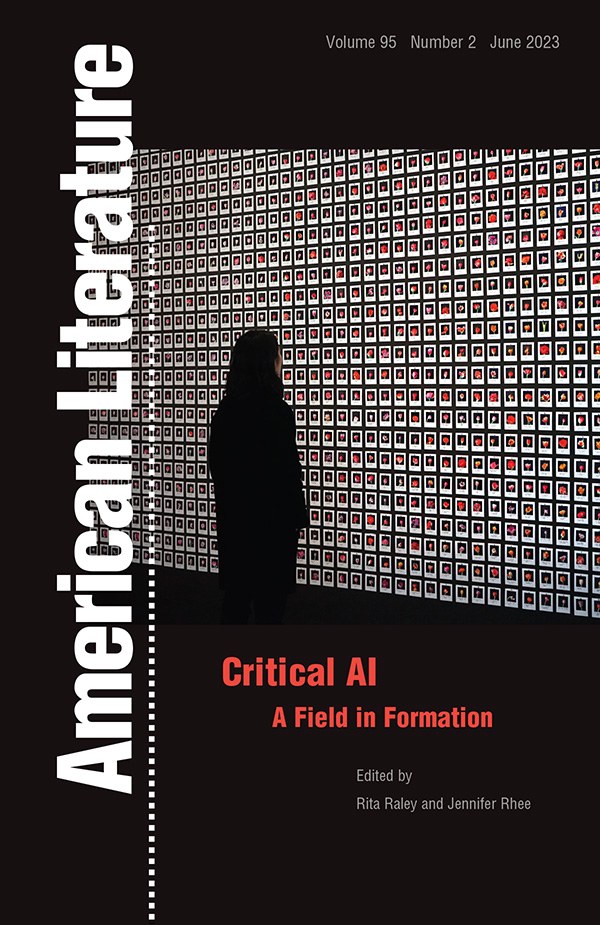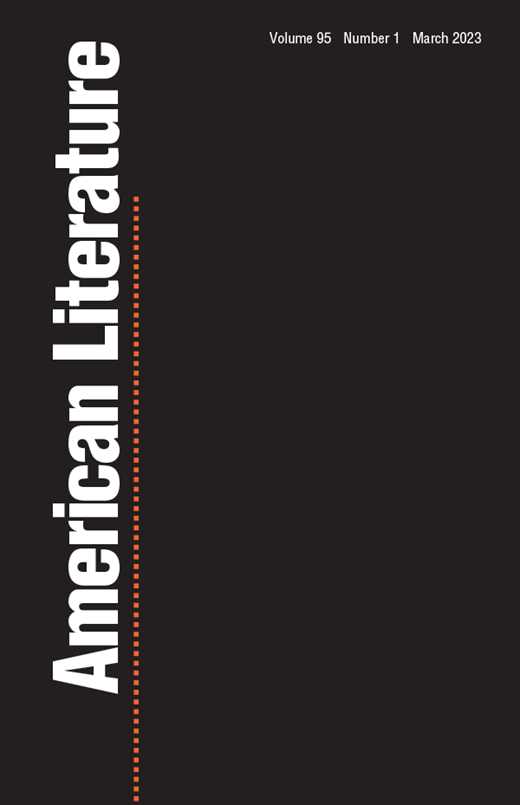We’re pleased to announce the winner of the 2023 Norman Foerster Prize, awarded to the best essay of the year in American Literature: “Poetry Will Not Optimize; or, What Is Literature to AI?” by Michele Elam, published in volume 95, issue 2. Read the essay, freely available through the end of April, here.
The prize committee offered this praise for the winning essay: “Elam’s essay offers a sharp examination of what she terms the ‘algorithmic ahistoricity’ of emerging AI technologies, especially as they’re deployed in the process of aesthetic production. With examples such as a GPT-3 rewriting of Maya Angelou’s “Still I Rise!,” Elam shows with nuanced clarity how the decontextualized nature of the data used by AI tends to offer ‘form without meaning,’ or what she refers to as historical and cultural ‘mush.’ Yet this essay isn’t simply a polemic against AI. In a compelling coda, Elam shifts gears and points to the potential inherent in extended interactive engagement with AI. Describing a ‘generative’ process, she suggests that like all technologies, AI is ‘a crucible of our worldviews’ and has the ability to highlight our own sometimes static thinking and our necessarily limited view of the world. Elam’s essay offers a valuable and timely contribution to new and old questions in the humanities about the definition of art, its production, and its value.”
The first honorable mention for this year’s Foerster Prize was “Subversion of the Human Aura: A Crisis in Representation” by N. Katherine Hayles (vol. 95, no. 2). The committee had this to say about the essay: “N. Katherine Hayles’s ‘Subversion of the Human Aura: A Crisis in Representation’ argues that the ‘liberatory possibilities’ Walter Benjamin believed were opened by machine reproduction’s corrosion of artworks’ aura (their radical, untouchable singularity) have important lessons for making sense of the relationship between machines and human beings in the age of AI. Rather than lamenting or celebrating AI writing, Hayles proposes that humanists’, social scientists’, and scientists’ most crucial work is disambiguating representational modes based on models of language (machines) and those based on models of the world (biological beings), demonstrating how novels by Annalee Newitz, Kuzuo Ishiguro, and Ian McEwan contribute to this project. Attending to the differences between human and machinic modes of speaking and writing grants the latter the power of cognition, in so doing subverting what Hayles calls the human aura (a claim that moves the locus of aura from artworks to human beings). Yet at the same time, frontally engaging the representational challenges opened by AI stands to help build contemporary cultures capable of negotiating a global frame in which human beings’, machines’, and non-human-animals’ representations complexly entangle and reinforce each other.”
The second honorable mention was “The Parasitical Trick: Mediating Dispossession in Early America” by Ethan A. Plaue (vol. 95, no.1). The committee had the following comments: “[Plaue’s essay] explores the relationship between settler colonialism and indigenous subjects. Plaue puts forth the notion that the ‘parasitical trick’ allows settlers to transform claims to indigenous sovereignty into more totalizing assertions of colonial power. In this way, indigenous populations are subordinated through their own attempts to assert agency even as the parasitical trick also allows them to envision a future outside of the North American settler dynamic. Plaue traces this technique through close readings of John Marshall, Mary Rowlandson, James Printer and Martin R. Delaney, offering scholars a new way to conceptualize the machinations of settler colonialism and the forms of its legitimation. His incisive analysis brings new theoretical energy to our understanding of the damaging impacts of settler colonialism and challenges periodizing claims which fail to recognize how past legal conditions are entangled with contemporary forms of racialized possessive logics.”
Congratulations to Michele Elam, N. Katherine Hayles, and Ethan A. Plaue!


